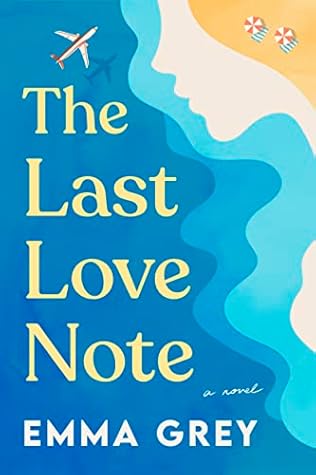More on this book
Community
Kindle Notes & Highlights
Back then we were tentative. Protective. Terrified that we’d somehow drop him. Instead, it was Charlie and me who somehow dropped Cam.
Never speak ill of the dead, Kate. It’s another impossible standard to which widows are held while they slip and falter across the unstable ice of grief, hoping it will hold.
That’s the problem with grief. It’s not packed tidily in a box that you can bring out in appropriate, private moments and sort through. It’s threaded inconveniently through everything.
Since Cam died, I’ve secretly walked a dangerous tightrope. I know I need to stay alive—for Charlie. But if an accident befell me, well …
I’m a rebel. Or a coward.
I feel more alive right now than I’ve felt in years. Maybe it’s because, on the back of this bike, I feel closer to death than I ever have before. A fraction of a second of lost concentration is all that lies between Cam and me. Such a fine line. Infinitesimal.
You can grieve a breakup, too, and grieve someone’s absence from your life, but when someone dies, it’s soul-deep. An impossible-to-grasp, endless absence not just from you, but from the entire world. You won’t run into them by accident in the supermarket. You can’t stalk them on social media. Your best friend won’t furnish you with gossip about their next steps. There’s just nothing. Forever.
“I couldn’t do it,” people say, loved up and secure in a relationship they think is bulletproof. But until you’re in a situation like this, you can’t conceive of the loneliness. You can’t know in advance how you’ll grieve. Can’t understand that time doesn’t operate the way it used to. Seconds are hours. Days are years. Your person was just here. Now they’re flung beyond the fringes of the universe.
“ ‘Losing’ is such a stupid word for what happens when someone dies,” I tell Hugh. “I haven’t misplaced my baby. Didn’t leave it lying around somewhere, or on the bus or in the trolley at the supermarket. I’m not absentmindedly going to lose my husband.…”
This is horrible—this grieving somebody while they’re still here.
It’s a lot like grief, standing here. You’re dragged from the shallows into the depths where it’s dark and heavy and you can’t see or hear or breathe. There were times over the last two years when, if I screamed, grief would swallow up the noise. It was bigger than my voice. A whirl of emotion for which there’s no sufficient word in the entirety of the English language.
Sometimes I flirt with death. It’s just a fleeting glance. A blip, somewhere on the outer edge of my radar. A faint, comforting reminder it’s always there in case I need it.
“Take it from a very old woman. No amount of sadness is going to bring your husband back. Did he want you to be happy when he was alive?” “Blissfully.” She smiles. “Don’t take that away from him, then, in death.”
He’s probably sorry this is exposing a wound. What people don’t get is the wound is always exposed. You can’t be reminded of something when it’s all you think about, even after you learn to go about the business of the day simultaneously.
I’m forever having to smooth this over for people, help them navigate the topic and reassure them it’s okay. On top of everything else involved in grief work, it’s just another layer of difficult.
“The point is, it’s your life. Your decision. Your timing. You might resist it now, but you’ll know the moment when it comes, and not before. And then you’ll realize the bigger risk is not taking a risk.”
I hope he realizes what he’s dealing with here: a widow’s heart. It’s just like a normal heart, but it’s made of a million shattered fragments, patched together in a mosaic. Reclaimed glass. Transparent. Easily broken.
How long is it reasonable to drag out your recovery from grief until you’re expected to get your act together again? Or maybe that’s where I’m going wrong. You don’t recover from it. There is no “healed” moment. You just absorb it into your new life, somehow, and go from there.
Grief is strange, when it happens in advance. Since Cam’s diagnosis two years ago, I’ve been processing this loss every day. I thought the time we had to accept it would make it easier. Sudden death must be so blindsiding in comparison. But now I’m here, I’m blindsided anyway, because I never truly believed this would unfold. Never stopped hoping for a miracle, even though we were so obviously not going to get one.
“Will it always be broken?” I murmur. It’s the scariest question I’ve ever asked anyone—particularly someone who has a definitive answer on this topic from his own experience. “Always,” he says carefully. “This is not about fixing that.”
There’s so much focus in grief on getting through all the “firsts.” First birthday without the person. First Christmas. First day of a new year they’ll never share with you. Before that, though, there’s a series of “lasts.” And by the time you’re aware of them, you’ve missed them. Things fade beyond comprehension. It’s too late for the words you’ve been saving.
But it feels like every step you take when you’re grieving is being dissected. Be careful, they think. Too fast! Too slow. Too happy-looking. Aren’t you better yet? When can we have the old Kate back, because this whole grief thing is getting old?
This is not a fork in the road, I realize. It’s just the road. There’s no Story A and Story B. There’s one, imperfect, meandering direction.
Maybe because, even in loss, there’s so much more to life.
I’ve learned that love outlives death. It holds steady through despair. It won’t fade, even as time elapses and distance increases and your world shifts.


